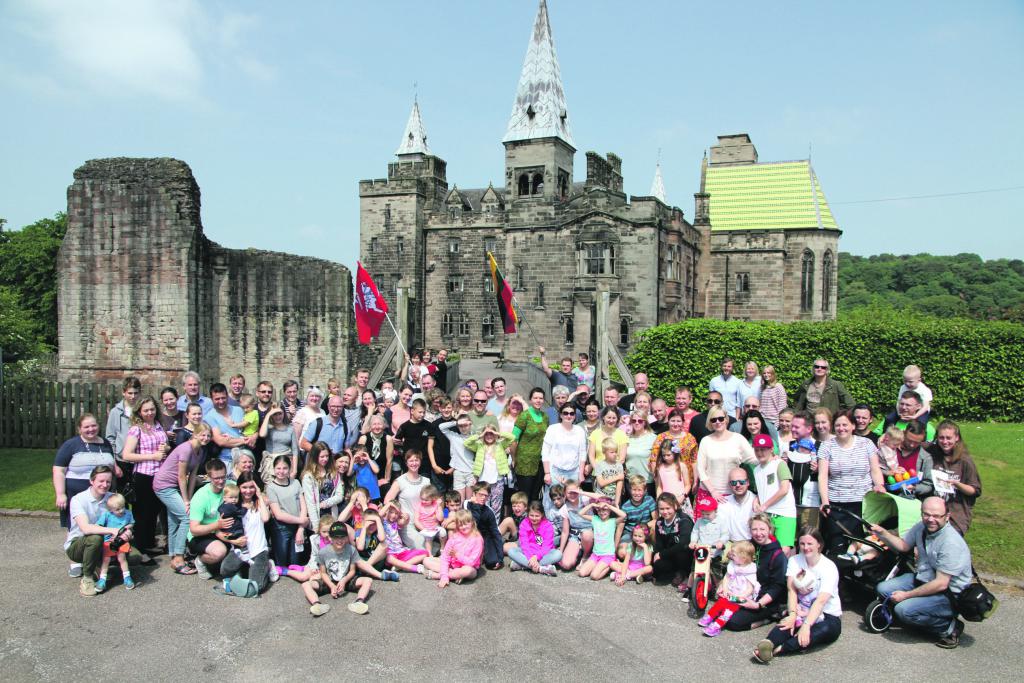Climate change has been at the forefront of media coverage and is one of the top political topics, occupying the attention of many. This is all for the right reasons.
There is, however, another at least equally significant global challenge faced by societies today: the condition of the human spiritual heart. The most stable and predictable climate, thriving ecosystems and booming economies would mean little if our consciousness were confused and hurting from broken relationships, destructive desires and envy. But for some reason we do not hear much about the fundamental needs of the human soul in mainstream media and world leaders are yet to convene a meeting to debate it.
No need to despair about that. We can and should work on these matters in our families and parishes, and in our Church. With this in mind, my wife and I joined the retreat that the Lithuanian Catholic community organised for our families over the May Bank holiday weekend. Nearly 150 women, men and children gathered on the beautiful grounds of Alton Castle in Stoke-on-Trent to enjoy the communion, to pray and ponder the words from John 15:11 ‘...that your joy may be full’.
The seeds of this joyful common time and effort will surely grow in each participating heart to bear fruit not just in abundance, but perhaps also in variety. One message that struck a chord for me was an invitation to recognise in every life experience an opportunity for advancing towards the fullness of joy and to take it as a precious gift, even when the event may be appalling by any other measure.
In John Chryssavgis’ book on the spirituality of the Desert Fathers and Mothers, Abba Zosimas explains the ways in which an inadvertent hardship can contribute towards building a more solid character. Such hardships in these particular situations can even be considered blessings, and those people who are used to deliver those hardships may be worthy of thanks and appreciation, rather than anger.
Sometimes, to combat pride and foster humility, it can be helpful to experience unfair treatment. Abba Zosimas gives an example of a man called Moses, who used to be a leader of a gang of robbers before becoming a Coptic monk in the deserts of Egypt in the fifth century. Abba Moses experienced what sounds like nasty verbal racist abuse, yet remained unperturbed and firm, quoting the psalm ‘Then I shall not be ashamed’ (Ps 119.6). He saw the situation as an opportunity to grow and to help others grow.
A more personal experience took place one Sunday afternoon as my wife and I were walking in London’s Victoria Park. Although we were speaking softly, two or three people who were passing by heard that we were not speaking English. One whispered in an angry half-voice: ‘stinking foreigners’ and disappeared quickly into the crowd. There were two possible responses. I could become upset or even bitter and let it spoil the otherwise wonderful memories of my beloved wife’s company among the blooming cherry trees, which we enjoyed together with many other happy people. Or I could protect and cherish every pure twinkle of the emotional warmth of that day and aim even further: to use the upsetting part of the experience as another building block for the foundations of the house that needs the solidity of a humble heart to be able to stand for the eternity.
Abba Moses was able to achieve the better choice on his own. He was a monk who left the world and all he had to live seeking God in a harsh desert. I am not. I needed to grapple with these two choices for a week and then to go on the retreat and be surrounded for three days with the healing love of truly caring people, with prayers, spirituals talk and evening Adoration. These brought me much, much closer to the desired destination. Now I am back home and I feel strong enough to continue the journey.
I want to thank most sincerely Fr Petras Tverijonas and all the volunteers for making it possible. The experience and memories we have from this retreat are not just about those three days. They continue in some subtle yet profoundly important way to shape and improve the lasting outlook on our entire past and future life.




